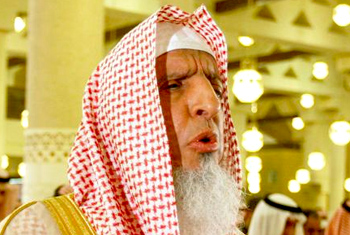Riyadh, Mar 9: Schools and universities will be closed in Saudi Arabia from Monday to control the spread of coronavirus.
The Saudi Ministry of Education said the “preventive and precautionary” measures were recommended by the health authorities and are designed to protect students and staff.
The decision covers all educational institutions, including public and private schools, and technical and vocational training institutions.
“The Minister of Education directed that virtual schools and distance education be activated while the schools are closed to ensure that the educational process continues in an effective and quality manner,” the ministry said.
The Kingdom's Education Minister, Hamad bin Mohammed Al-Asheikh, confirmed that the decision was a precautionary step and said that they are conducting daily and weekly evaluations before returning to school.
Meanwhile, the Minister of Health, Tawfiq Al-Rabiah, confirmed that there have been no coronavirus cases in any educational facility in the Kingdom.
“Thank God, the situation is reassuring, and there has been no case in any educational facility. However, the increasing cases in countries have made us keen to enhance the safety of our sons and daughters. So we coordinated with the Ministry of Education to close the schools temporarily,” he said in a tweet on Sunday.
The education ministry has set up supervision offices to help coordinate the distance learning, and respond to parents’ inquiries.
A new committee set up by the ministry will also ensure the virtual schools are functioning through the distance learning methods provided by the ministry.
These include the virtual school platform (Vschool.sa) and mwterials available from the Apple and Android stores.
It will also provide lessons through the “Ain” TV channeland as well as on YouTube via this link: www.youtube.com/dorosien.
The General Presidency for the Affairs of the Grand Mosque and the Prophet’s Mosque also said on Sunday that it will suspend the visitation programs in its external facilities as part of recommended precautions to prevent the spread of the coronavirus and ensure the safety of visitors.
The facilities include the King Abdulaziz Complex for the Covering of the Holy Kaaba, the Gallery of the Two Holy Mosques, and the Library of the Holy Mosque of Makkah.
“The presidency has taken a series of precautionary measures to prevent the spread of the virus, by intensifying sterilization work that is taking place around the clock, and has been keen on coordination and joint cooperation with all relevant government sectors,” it said in a statement issued on SPA.
It added that these preventive efforts come within the procedures that are being implemented by the Saudi government seeking to combat the spread of the new virus, to protect the people of the Two Holy Mosques in particular, and citizens and residents in the Kingdom in general.
 Jeddah, Jun 22: Kingdom's Grand Mufti Sheikh Abdul Aziz Al-Asheikh warned the Saudis against temporary marriages being promoted by marriage brokers abroad, stressing that this marriage is not approved in Islam.
Jeddah, Jun 22: Kingdom's Grand Mufti Sheikh Abdul Aziz Al-Asheikh warned the Saudis against temporary marriages being promoted by marriage brokers abroad, stressing that this marriage is not approved in Islam.




Comments
Add new comment